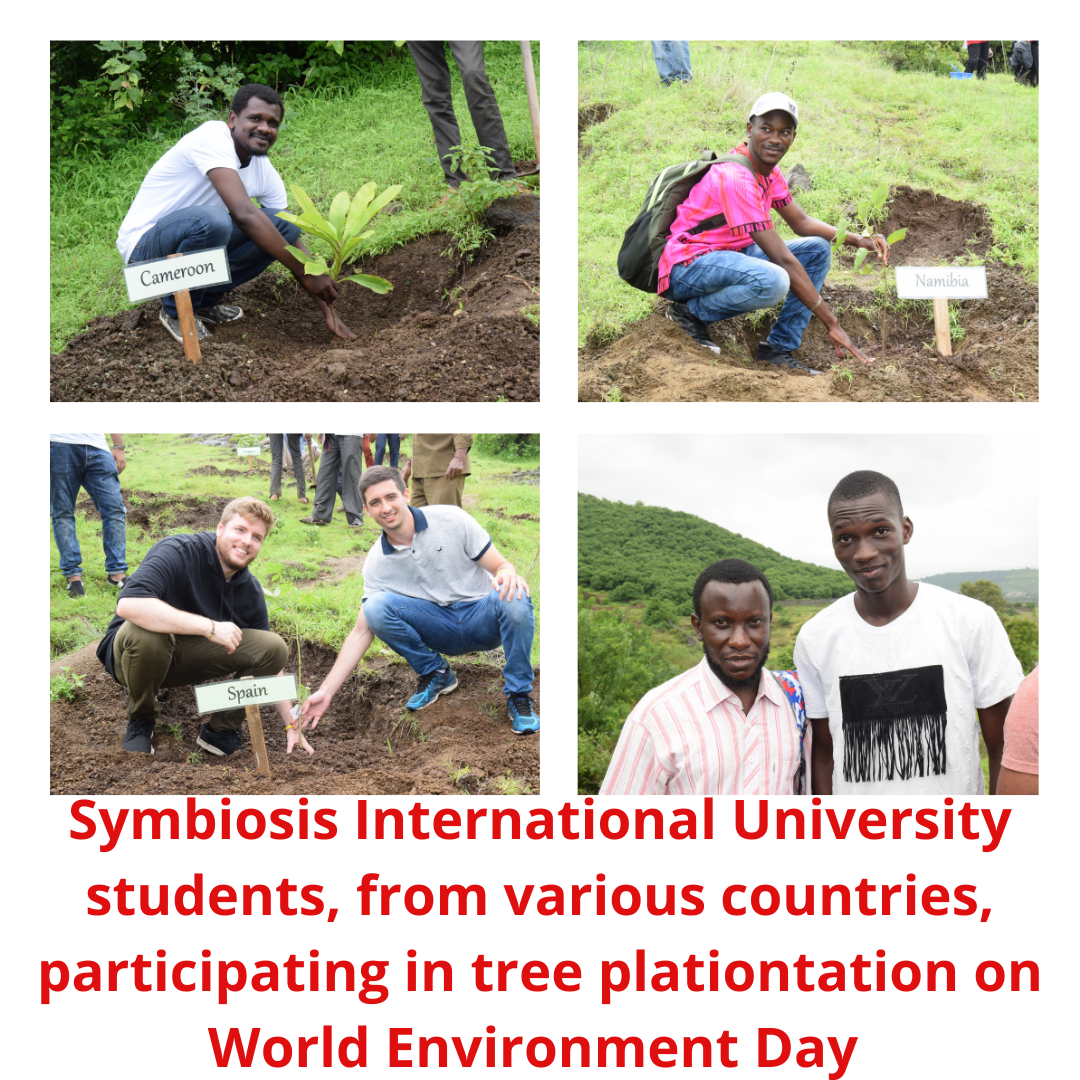
Yesterday was celebrated as the World Environment Day, across the world. Thankfully, we live in an era where a vast population is aware of the importance of conservation of the environment. Though many may even argue that the larger population is not aware of the importance of environment conservation, I would say that the realisation has happened and thus we will make progress for sure.
As I have said earlier, universities play a much larger role that just creating employable individuals who have skills and knowledge. Universities should therefore create individuals who are mindful of their actions and are thoughtful of the repercussions of their actions. At Symbiosis International University, during the years that the students are here with us, we endeavour to create sensitivity among students about the environment. When it is imbued into their character then they will pursue it for all the years of their lives and not just during the one’s spent at the university.
Recently, Dr Gurudas Nulkar, head of the Symbiosis Centre for Climate Change and trustee of the ecological society, Pune, highlighted the importance of stopping hyacinth from growing in our ponds and lakes. To quote him, “There are two major effects of the hyacinth cover. Sunlight stops reaching the water and atmospheric oxygen stops mixing with the water completely. Due to lack of sunlight and decreasing dissolved oxygen in the water, life inside the water starts dying quickly. This wipes out the diversity in the water. The main reason for the growth of hyacinth is the phosphate pollution caused by the detergent load that enters the sewage. The cleaning of river bodies is done periodically every year to remove the hyacinth. The permanent solution is not to allow sewage water into the Ram Nadi. All the sewage treatment plants have to work at 100% efficiency. The society must release sewage water only after proper treatment.” Additionally, people should be cautious about the usage of detergents in their households. Talks on such offbeat topics makes the students think about the impact of their actions.
To create more awareness about the importance of water bodies, Symbiosis Centre for Climate Change and Sustainability organized a webinar today. Some of the questions that were addressed by Dr Nulkar such as “As urban dwellers, are we really connected to our rivers? Do we know them enough?” are very relevant to our times.
Apart from such talks the students are also engaged in meaningful activities. In line with the Government of India initiative, different Institutes of Symbiosis International University conducted Swachh Bharat Abhiyan. The Swachchta Abhiyan was conducted in 23 villages around the main Lavale Campus jointly by students of Symbiosis School of Banking & Finance, Symbiosis Centre for Management and Human Resource Development, Symbiosis Institute of International Business and SSP. The villages that were covered were Aandhale, Andgaon, Evharade, Javal Rasalwadi, Khamboli, Kharavade, Kolwade, Lavale, Malegaon, Rihe, Vartude, Wanjale. Even the students and faculty of SIBM participated in a campaign to promote Plastic Waste Free Drive in and around SB Road campus in Pune Municipal Corporation jurisdictions.
A Paper Recycling was done in collaboration with ITC Limited Paper boards and Specialty Papers Division (WOW – well-being out of waste). SIBM-Pune have contributed 4606 kgs of waste paper for recycling and saved 101 trees, 120 Kilo liters of water, 4 MT carbon-di-oxide reduction, 2073 Units Energy and 5.1 cubic meter land fill space per ITC estimates in May 2016.
Besides these, there are Sewage Treatment Plant and Rain Water storage arrangement at our Campuses. To avoid overwatering and hence wasting of water, drip irrigation pipe line has been installed for the garden and landscape. Use of recycled STP water for watering the plants is done in the campus gardens. There are two tanks (One in the academic block and one in the hostel block) for the purpose of collecting rain water at the main campus, thus promoting rain water harvesting.
A few years ago, ASHADEEP, a Student initiative of SIBM Pune received the Indian President’s appreciation for activating a rural project related to conservation of electricity. Subsequent, field visits to Ralegoan Siddhi, Ahmednagar, Maharashtra-A project heralded as a sustainable model of a village republic.
Through all such initiatives over the past several years, Symbiosis International University has sensitised and engaged the students in activities related to the conservation of the environment. We hope to continue on our journey and motivate the students towards becoming responsible global citizens.